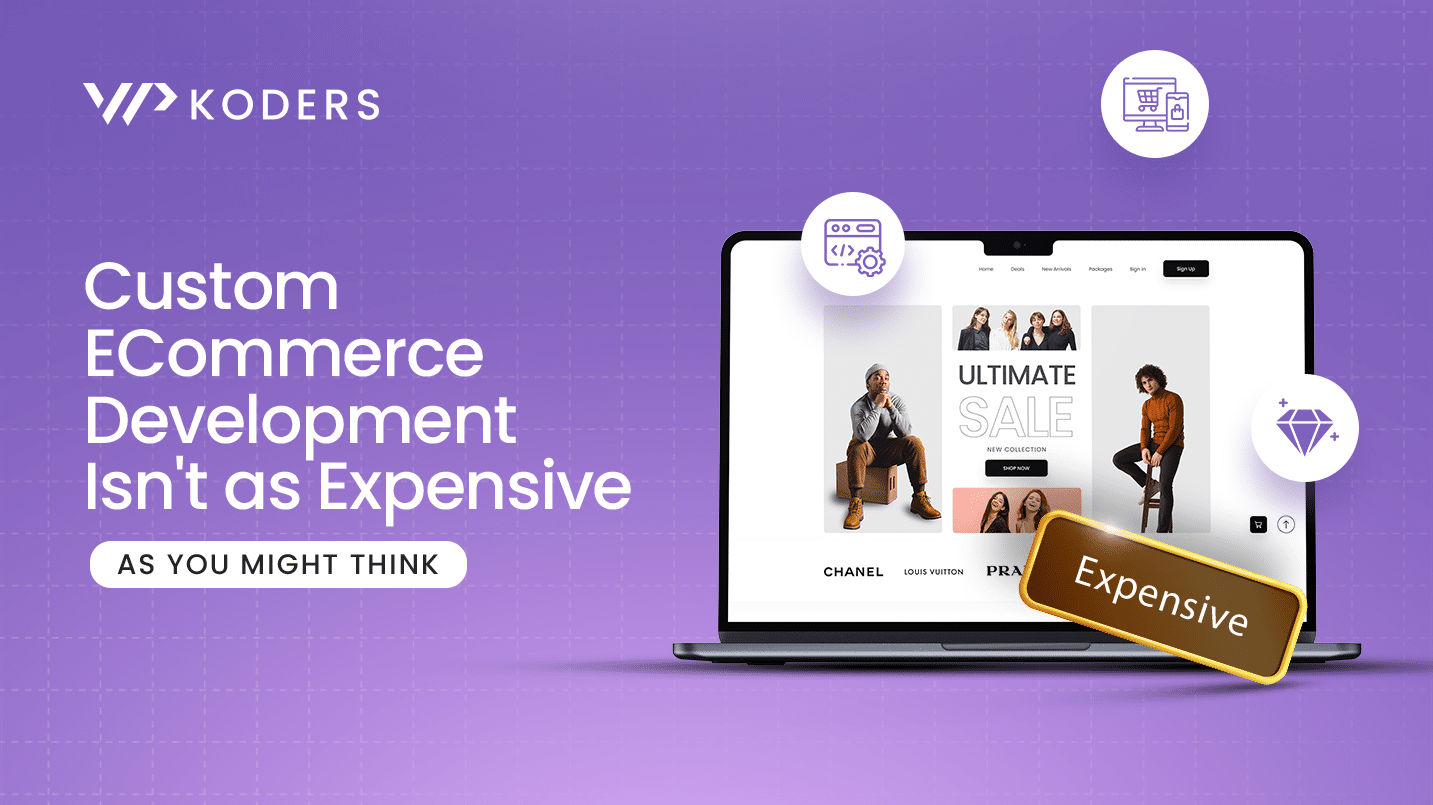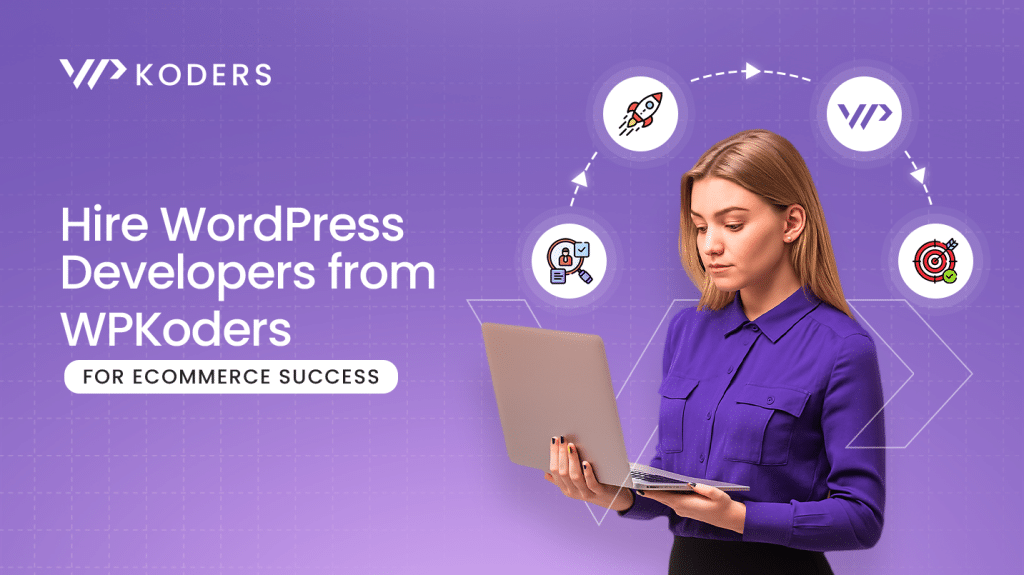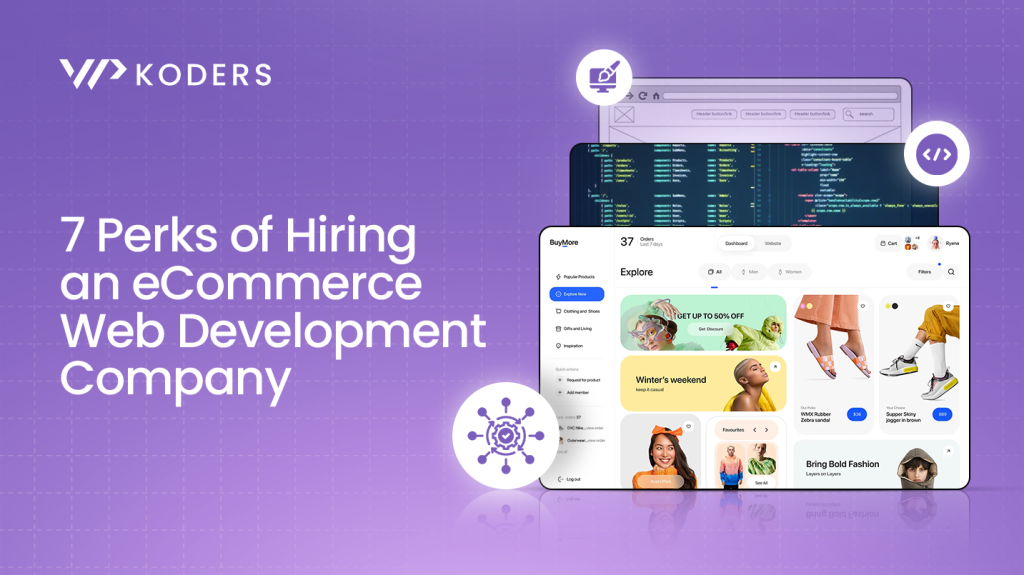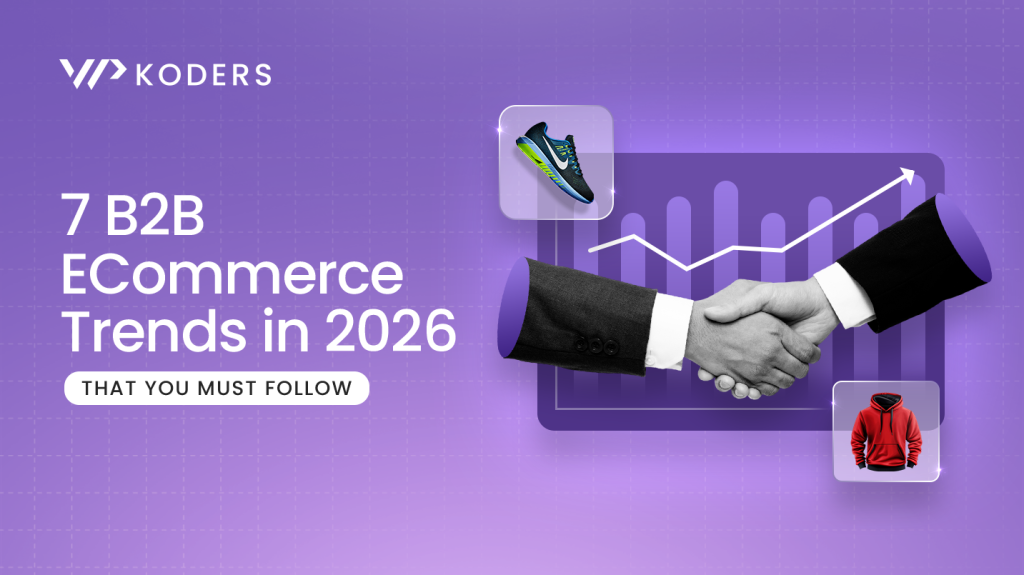The thought of custom ecommerce development often invokes visions of exorbitant costs and lengthy development processes. However, with advancements in technology and smart strategic choices, tailoring an online store is now possible. In fact, it is more accessible than ever, even for those with less budget. This blog will delve into the concepts of no code and low code development and compare ecommerce websites with platforms. In addition, it will extract the best ecommerce platform for small business growth by comparing them against each other. Furthermore, it will highlight a few tactical plugins before setting the stage for the best ecommerce development company. Let’s start with the no code dream store idea.
No Code Low Code Development
The rise of ‘No Code Low Code development’ paradigms are revolutionizing how businesses approach digital solutions, including ecommerce.
No Code Development
A no-code platform empowers users to build functional applications and websites without writing a single line of code. Such a platform typically offers an intuitive drag-and-drop interface, pre-built templates, and visual editors. The lightning-fast setup makes it an ideal platform for small businesses or those testing a new product idea.
Low Code Development
A low-code platform fills up the void between no-code and traditional coding. While still leveraging visual development tools, they also allow developers to inject custom code where necessary. It offers greater flexibility and scalability than no-code, enabling more complex functionalities and integrations without starting from scratch. For ecommerce, it maintains a balance between rapid development and the ability to truly customize and differentiate your store.
eCommerce Website vs Platforms
Understanding the distinction between an ecommerce website and an ecommerce platform is crucial. A simple ecommerce website might be a static or dynamic site with some ‘buy now’ buttons, besides a few features. In contrast, an ecommerce platform is a comprehensive system for managing products, posts inventory, payments, shipping, and customer interactions. It provides the robust infrastructure, including hosting and security, for a thriving online business, running 24*7 without much efforts.
The best part! A platform store costs a quarter of an ecommerce website, even with expert ecommerce developers. With custom development in mind, most aspiring entrepreneurs ignore the possibility of a platform store in affordable costs. But wait, which platform is best? Let’s evaluate in the next section.
The Best eCommerce Platform
The ‘best ecommerce platform’ is subjective and depends entirely on your specific needs, budget, and growth aspirations. Although, there’s no single definite answer, but let’s have a look at some popular contenders.
Wix vs WordPress
Wix: It is known for its user-friendliness and drag-and-drop simplicity. It’s an excellent choice for beginners and smaller businesses prioritizing ease of use and quick setup. However, its customization options and scalability can be limited.
WordPress: It offers unparalleled flexibility and control although it has a steeper learning curve. Its open-source nature, vast plugin ecosystem, and scalability make it suitable for almost any size of business. It is ideal for those looking for deep customization and long-term growth.
Shopify vs WooCommerce
Shopify: It’s a fully hosted, all-in-one SaaS solution renowned for its ease of use, robust features, and excellent support. It handles hosting, security, and updates, making it a hassle-free option. The monthly fees and transaction costs can add up, and customization is primarily via its app store and theme editor.
WooCommerce: The leading ecommerce plugin for WordPress offers immense flexibility and control. It’s free to install, but you’ll manage your own hosting, security, and maintenance. It gives you complete ownership and deep customization potential, making it ideal for those with a more hands-on approach.
Surecart vs WooCommerce
Surecart: Its a newer, headless ecommerce plugin for WordPress, designed for simplicity and speed. It handles critical transaction logic on external, secure servers, leading to faster checkouts and reduction in server load. It’s particularly suitable for digital product sellers, course creators, and service-based businesses looking for an efficient solution.
WooCommerce: As mentioned, it’s a comprehensive, open-source solution that processes all logic on your server. It offers unmatched customization and control for complex workflows and large product catalogs, but requires more setup and ongoing management.
The Ideal eCommerce Platform
The ideal ecommerce platform aligns with your current needs while offering room to grow. Following are the key features that you must look for.
- Scalability: Can it handle increase in traffic and product offerings in the long-run?
- Customization: Does it allow you to brand your store and add unique functionalities?
- Payment Gateways: Does it support your payment methods and do they charge transaction fees?
- SEO Capabilities: Are there built-in tools or robust plugins for search engine optimization?
- Integrations: Can it connect with your existing CRM, accounting software, or marketing tools?
- Ease of Use: How steep is the learning curve for managing products, orders, and content?
- Support: What kind of support is available in terms of community, documentation, and experts?
Don’t panic! We are here to address any confusion and queries in the selection of a platform. As per our experience in the domain, WordPress with WooCommerce stands as the ultimate winner, in most cases. It has a decent mix of all these capabilities along with a vast library of plugins and room for customization. Well, this doesn’t, in any way, downgrade the competence of other platforms. It finally depends on your preferences and needs, that might compel you to find plugins, as we will discuss below.
Tactical eCommerce Plugins
Regardless of your chosen platform, specific tactical plugins can significantly enhance your ecommerce functionality and performance. We are excluding marketing, CRM, and many other add-ons for simplicity.
Pricing Plugins
These allow for dynamic pricing, role-based pricing, quote requests, or hide price options, helping you implement diverse pricing strategies.
Sales Plugins
Tools for abandoned cart recovery, upsells, cross-sells, scarcity timers, and multistep product bundles can dramatically boost conversion rates and AOV.
Checkout Plugins
Plugins can simplify checkout forms, create one-page checkouts, add custom fields, or apply checkout rules for optimizing the checkout process.
SEO Plugins
Essential for visibility, SEO plugins help with on-page optimization, XML sitemaps, schema markup, and technical SEO. They offer powerful tools for improving search rankings and driving organic traffic.
Best Custom eCommerce Development Company
While platforms offer powerful out-of-the-box solutions, a truly unique and highly optimized ecommerce store often benefits from custom development. With many development companies boasting diverse experience, attractive themes, and wonderful plugins, choosing one is often difficult. WPKoders is for sure the best custom ecommerce development company when it comes to affordability and premium quality.
eCommerce Web Development
We build a store precisely adhering to your business model, unique functionalities, bespoke designs, and seamless integration with existing systems. It ensures your online store is not just a marketplace but a powerful extension of your brand.
Custom Plugin Development
When off-the-shelf plugins don’t meet a specific business need, custom plugin development comes into play. Our plugin developers create competitive solutions, whether it’s a unique product configurator, a loyalty program, or a shipping calculation system.
Strategic WordPress Plugins
Beyond the core ecommerce plugins, our strategic WordPress plugins optimize performance and enhance overall user experience. These include:
- WooCommerce Plugins: Bestsellers for dynamic pricing, increasing AOV, and checkout controls.
- Caching/Performance Plugins: Critical for ensuring fast load times, which are vital for SEO and user satisfaction.
- Image Optimization Plugins: Reduce image file sizes to further improve site speed.
- Redirection & Broken Link Management: Maintain site health and prevent SEO issues from broken links or redirections.
- Internal Linking Tools: Improve site navigation and search engine crawlability.
Custom WordPress Development
For WordPress ecommerce, our custom WordPress development services include ecommerce consulting, design, development, integrations, security implementations, and ongoing maintenance. We ensure your WooCommerce store is perfectly optimized for sustainable growth and attains business goals.
Conclusion
Custom ecommerce development is no longer a luxury affordable to enterprise-level businesses. With the intelligent application of no-code/low-code tools, the right platform, and strategic plugin integration, businesses of all sizes can benefit. You can achieve a unique, high-performing online store that drives growth without breaking the bank, that too in lead time. The key lies in understanding your specific requirements and leveraging the vast ecosystem of tools and expertise available. Reach out to WPKoders for more information and quotations.







